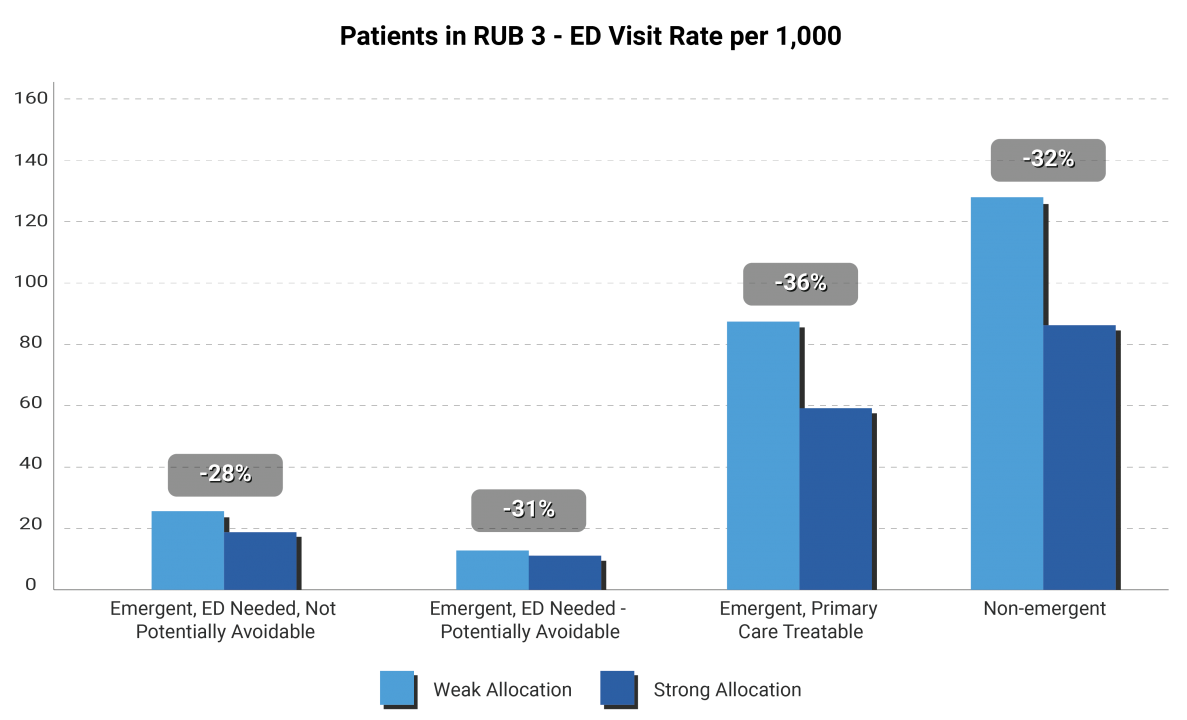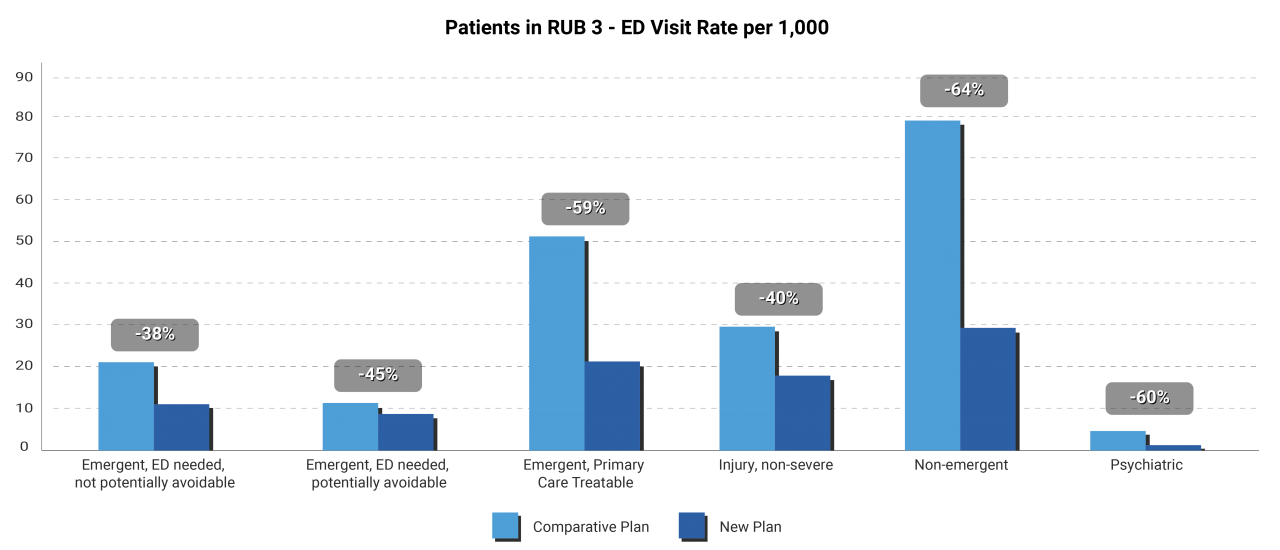

Long-time ACG System user Discovery Health, who provides administration and managed care services to over 3 million beneficiaries throughout South Africa, found themselves facing a challenge: too many people using the emergency department (ED) as a first point of care before consulting a primary care provider (PCP). Discovery wanted to find a way to improve patient access to PCPs to both improve health outcomes for patients and keep costs affordable by reducing unnecessary ED visits. The use of the ACG System and its ED classification system played a role in helping Discovery achieve its objective.
The team at Discovery developed a model calculating the expected admission rate for members visiting an emergency department. Part of this model comprised pre-existing ACG variables. The team then examined the nature and strength of the relationship between each member and a primary health care provider based on how much of their care they sought from the PCP. The team examined whether there was a difference in experience of members with stronger relationships with their primary health care providers on emergency department visits and subsequent admission rates into hospital from an emergency department. The team found that members allocated strongly to a PCP (those with a high number of PCP interactions/visits) have a lower-than-expected admission rate to the ED. In fact, there was a significantly lower amount of ED visits per 1,000 claimants for strongly allocated patients compared to weakly allocated ones. This is illustrated in the graphic below.
The ED classification system within ACG System was used to validate the outputs of this model and to gain further insights as to the reasons for patients visiting the emergency department and whether these visits were avoidable.

With this key finding in hand, Discovery Health launched a new benefit plan which required members to see a primary care provider first before they could “unlock” access to secondary and tertiary levels of care. This strategy dovetailed with Discovery’s philosophy that primary care sits at the center of all strong health care systems and should be the first point of contact for its members. So far, the strategy has some promising findings. As shown in the graphic below, patients in Resource Utilization Band1 (RUB) 3 – those with a moderate level of complexity – who used Discovery’s plan had a significant decrease (up to 64%) in ED visits per 1,000 claimants compared to those using a comparative plan not requiring PCP visits.

Discovery Health’s innovative work made effective use of the ED classification system and other ACG System variables, and it paid off: their health care plan not only increased access to primary care for their members, but it also reduced unnecessary ED visits, maximizing health resources and keeping costs lower for everyone.
In 2020, this project won Discovery Health the prestigious Starfield Award, presented in honor of Dr. Barbara Starfield for projects that use the ACG System to address multi-morbidity in patients and populations, reduce disparities in the delivery of primary health care or improve population health. Read more about Discovery Health’s award-winning project here.
This is just one example of the ACG System’s ED Classification tools at work. Read more about our ED Classification tools in these blog posts:
1 Resource Utilization Bands (RUBs) are collapsed versions of the ACG categories and as such, group people together who have similar morbidity profiles. There are five RUBs ranging from 1 (healthy users) to 5 (very high degree of morbidity).
Follow Us